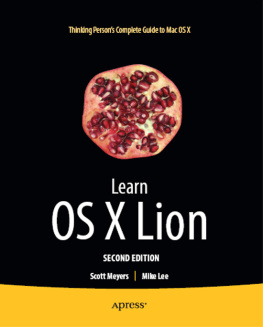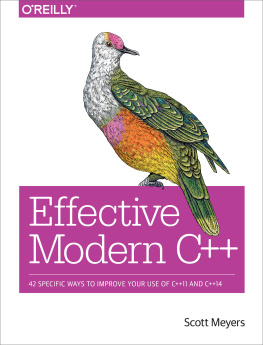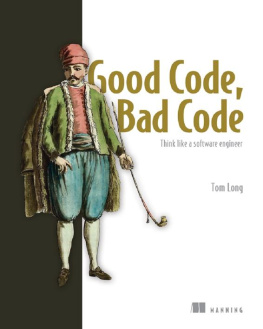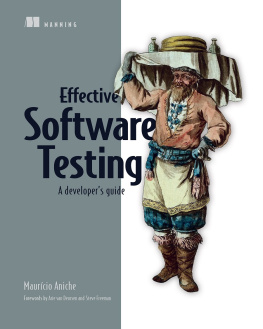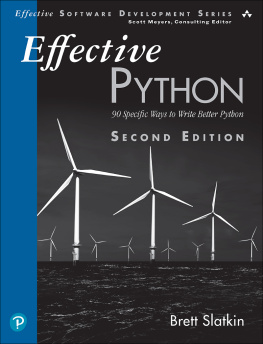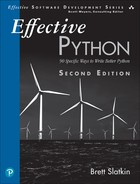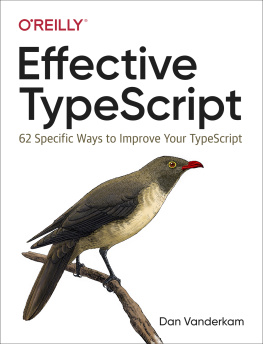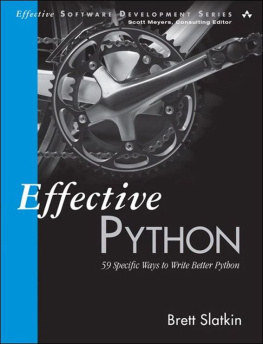Appendix A. Beyond Effective C++
Effective C++ covers what I consider to be the most important general guidelines for practicing C++ programmers, but if you're interested in more ways to improve your effectiveness, I encourage you to examine my other C++ books, More Effective C++ and Effective STL .
More Effective C++ covers additional programming guidelines and includes extensive treatments of topics such as efficiency and programming with exceptions. It also describes important C++ programming techniques like smart pointers, reference counting, and proxy objects.
Effective STL is a guideline-oriented book like Effective C++ , but it focuses exclusively on making effective use of the Standard Template Library.
Tables of contents for both books are summarized below.
Contents of More Effective C++
Basics
: | Distinguish between pointers and references |
: | Prefer C++-style casts |
: | Never treat arrays polymorphically |
: | Avoid gratuitous default constructors |
Operators
: | Be wary of user-defined conversion functions |
: | Distinguish between prefix and postfix forms of increment and decrement operators |
: | Never overload && , || , or , |
: | Understand the different meanings of new and delete |
Exceptions
: | Use destructors to prevent resource leaks |
: | Prevent resource leaks in constructors |
: | Prevent exceptions from leaving destructors |
: | Understand how throwing an exception differs from passing a parameter or calling a virtual function |
: | Catch exceptions by reference |
: | Use exception specifications judiciously |
: | Understand the costs of exception handling |
Efficiency
: | Remember the 80-20 rule |
: | Consider using lazy evaluation |
: | Amortize the cost of expected computations |
: | Understand the origin of temporary objects |
: | Facilitate the return value optimization |
: | Overload to avoid implicit type conversions |
: | Consider using op= instead of stand-alone op |
: | Consider alternative libraries |
: | Understand the costs of virtual functions, multiple inheritance, virtual base classes, and RTTI |
Techniques
: | Virtualizing constructors and non-member functions |
: | Limiting the number of objects of a class |
: | Requiring or prohibiting heap-based objects |
: | Smart pointers |
: | Reference counting |
: | Proxy classes |
: | Making functions virtual with respect to more than one object |
Miscellany
: | Program in the future tense |
: | Make non-leaf classes abstract |
: | Understand how to combine C++ and C in the same program |
: | Familiarize yourself with the language standard |
Contents of Effective STL
: Containers
: | Choose your containers with care. |
: | Beware the illusion of container-independent code. |
: | Make copying cheap and correct for objects in containers. |
: | Call empty instead of checking size() against zero. |
: | Prefer range member functions to their single-element counterparts. |
: | Be alert for C++'s most vexing parse. |
: | When using containers of new ed pointers, remember to delete the pointers before the container is destroyed. |
: | Never create containers of auto_ptr s. |
: | Choose carefully among erasing options. |
: | Be aware of allocator conventions and restrictions. |
: | Understand the legitimate uses of custom allocators. |
: | Have realistic expectations about the thread safety of STL containers. |
: vector and string
: | Prefer vector and string to dynamically allocated arrays. |
: | Use reserve to avoid unnecessary reallocations. |
: | Be aware of variations in string implementations. |
: | Know how to pass vector and string data to legacy APIs. |
: | Use "the swap TRick" to trim excess capacity. |
: | Avoid using vector . |
: Associative Containers
: | Understand the difference between equality and equivalence. |
: | Specify comparison types for associative containers of pointers. |
: | Always have comparison functions return false for equal values. |
: | Avoid in-place key modification in set and multiset . |
: | Consider replacing associative containers with sorted vector s. |
: | Choose carefully between map::operator[] and map::insert when efficiency is important. |
: | Familiarize yourself with the nonstandard hashed containers. |
: Iterators
: | Prefer iterator to const_iterator , reverse_iterator , and const_reverse_iterator . |
: | Use distance and advance to convert a container's const_iterator s to iterator s. |
: | Understand how to use a reverse_iterator 's base iterator . |
: | Consider istreambuf_iterator s for character-by-character input. |
: Algorithms
: | Make sure destination ranges are big enough. |
: | Know your sorting options. |
: | Follow remove -like algorithms by erase if you really want to remove something. |
: | Be wary of remove -like algorithms on containers of pointers. |
: | Note which algorithms expect sorted ranges. |
: | Implement simple case-insensitive string comparisons via mismatch or lexicographical_compare . |
: | Understand the proper implementation of copy_if . |
: | Use accumulate or for_each to summarize ranges. |
: Functors, Functor Classes, Functions, etc.
: | Design functor classes for pass-by-value. |


